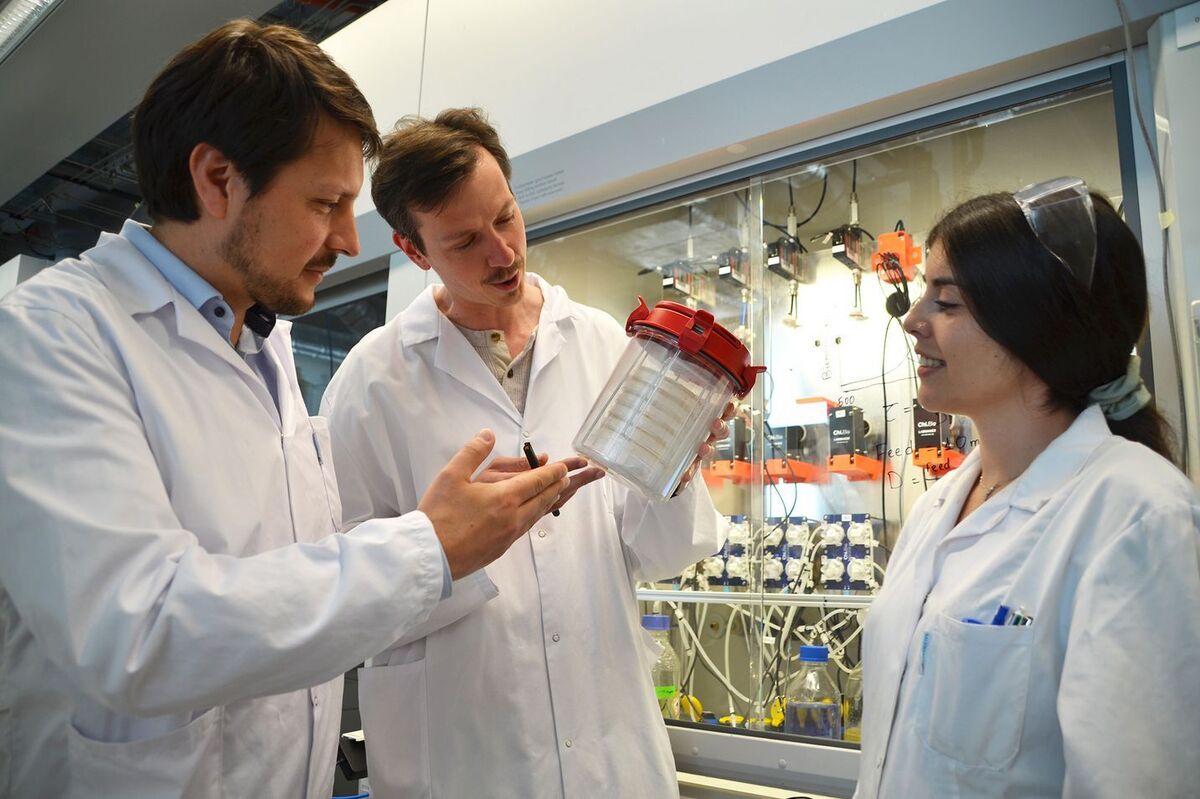
TU Wien Scientists Engineer Bacteria to Metabolize Carbon Monoxide
June 18, 2025| |
A research team, led by Stefan Pflügl from the Institute of Chemical, Environmental and Bioscience Engineering at Vienna University of Technology (TU Wien), has successfully genetically engineered the bacterium Thermoanaerobacter kivui to metabolize carbon monoxide. Their findings, published in Nature Communications and Biotechnology for Biofuels and Bioproducts, open opportunities for their application in converting synthesis gas into useful bio-based products.
T. kivui is known to thrive at high temperatures and convert simple molecules like carbon dioxide and hydrogen into organic compounds. With its potential use in biomass gasification, genetic modification could be used to allow T. kivui to sustainably produce valuable chemicals, such as ethanol and isopropanol. “We succeeded in slowly adapting the bacterium to carbon monoxide”, said Pflügl. "Later, it was even able to use carbon monoxide as its sole source of energy and carbon,” he added.
Building on this discovery, the team used Hi-TARGET, a gene editing tool based on CRISPR-Cas technology, to replicate and accelerate the process. This method allowed them to modify the bacterium's DNA with 100% success at a significantly faster rate. Their findings not only deepen the understanding of microbial evolution but also provide insights into a powerful tool for bioengineering other gas-metabolizing organisms. According to Pflügl, this breakthrough has the potential to improve biofuel production and reduce reliance on fossil-based resources.
For more information, read the article from TU Wien or the journal articles from Nature Communications and Biotechnology for Biofuels and Bioproducts.
| |
You might also like:
- Pocket K No. 24: Biotechnology for Green Energy: Biofuels
- Scientists Determine Successful, Cost-Efficient Biofuel Production
- Experts to Use CRISPR for Carbon Capture with Crops
Biotech Updates is a weekly newsletter of ISAAA, a not-for-profit organization. It is distributed for free to over 22,000 subscribers worldwide to inform them about the key developments in biosciences, especially in biotechnology. Your support will help us in our mission to feed the world with knowledge. You can help by donating as little as $10.
-
See more articles:
-
Plant
- EFSA GMO Panel Releases Scientific Opinion on GM Soybean MON87708
- ICRISAT Develops World's First Extreme Heat-Tolerant Pigeonpea via Speed Breeding
- Indonesia Showcases Agricultural Biotechnology Innovations to Stakeholders
- Pairwise Licenses Gene Editing Platform to CIMMYT
-
Animal
- KAIST Researchers Pioneer RNA Modification in Living Organisms
- Study Examines Ethical Use of Genetic Modification to Eliminate Harmful Species
-
Environment
- TU Wien Scientists Engineer Bacteria to Metabolize Carbon Monoxide
- Save the Date: ASCA8 in Manila - September 2025
-
Read the latest: - Biotech Updates (January 14, 2026)
- Gene Editing Supplement (December 17, 2025)
- Gene Drive Supplement (February 22, 2023)
-
Subscribe to BU: - Share
- Tweet

